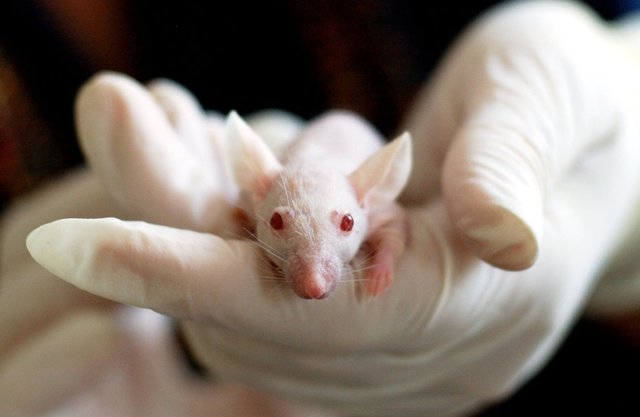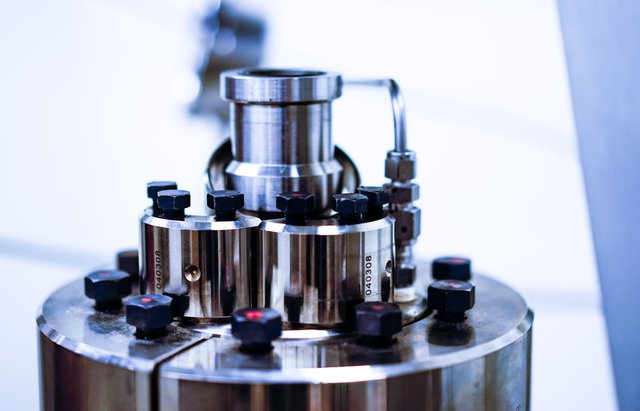

Greetings to all my tech-savvy friends! I've finally found another worthy topic to write about.
Have you ever wondered what would happen to society if two people of the same gender were able to make a baby together?
Or what would happen if we could repair our cells and organs when we get older in the pursuit of living forever?
I know what you are thinking... Ok, he's lost it, I think we're just about finished here!
Wait just a second! I'm not asking this question as if it was impossible but rather, just the opposite. In the 21st century, researchers have been making massive progress in the understanding of cell biology and other disciplines including biorobotics, synthetic biology, and a relatively new field called bionanotechnology.
Throughout history, intercourse was an essential part of bringing new human life into the world. In order to make a baby it takes a sperm and an embryo. I think most of us are old enough to know that they don't just randomly meet by chance.
Due to this fact when the leaders of nations wanted to increase the speed of growth in their populations, they needed to find a better way to encourage gender relations between the opposite sexes.
Things have changed now, technology has proven it can replace older natural ways of conception with newer more artifical ways. Basically, the point I'm trying to make here is that intercourse is no longer necessary in order to conceive a child.



There have been many advances in science that have made things that used to be considered impossible now possible. Humanity can thank the Nobel prize winning work of researchers like embryologist John Gurdon and stem cell researcher Shinya Yamanaka.
These two award winning researchers found ways to create both sperm cells and eggs in the laboratory from skin cells.This has effectively eliminated the need for a human mother or father to kick off the reproductive process.
Now comes the hard question... Is that good or bad?
The fact of the matter is that the answer isn't up to debate. People need to simply accept the fact that it is now possible to create both sperm cells and eggs in the laboratory from skin cells.
At the end of April 2016, Stanford University and the Valencia Infertility Institute announced the result of a collaboration project in which human sperm, with tails, were created from skin cells.
Just five months later, testifying to the speed with which stem cell research is progressing, researchers at the University of Bath reported that they had discovered a method of creating offspring without the need for a female egg.
This was heralded as a major breakthrough which rewrites 200 years of biology teaching, and could pave the way, for example, for a baby to be born from the DNA of two men.
Ok, so lets just review some of these new developments briefly. Scientists now have the ability to create embryos and sperm from skin cells. Beyond that they also have the ability to make a human being without the need for an embryo. Is this starting to look like fringe science here or what?
Does anyone else find it fascinating and possibly a bit scary that it is now possible to create a baby from the DNA of two men?



Ok, so I've been discussing new technologies that are involved with procreation of human beings thus far. But what about people who just want to live forever, isn't this type of application still in the same ballpark?
The answer to the question is, yes, its a close cousin. To prove my point, in August 2017, Ohio State College of Engineering made an exciting announcement about progress they had made in “Tissue nanotransfection” (TNT for short) which allows injured or aging tissue to be repaired or restored, including blood vessels, nerve cells and entire organs.
If you've ever watched Star Trek you may have been amazed like I was at watching the doctors in the medbay magically heal cells and fix wounds with some sort of laser based medical device. This news is comparable to that with a few more steps that need to be taken from here to there.
According to my source, TNT technology is made of two components. The components include a nanotechnology-based chip designed to deliver cargo to adult cells in a live body and specific biological cargo for cell conversion.
They make it sound so easy! It is also worth mentioning that TNT doesn't need laboratory-based procedures in addition to being non-invasive (this means they don't have to cut you open, something a lot of people are usually quite afraid of).
“By using our novel nanochip technology, injured or compromised organs can be replaced. We have shown that skin is a fertile land where we can grow the elements of any organ that is declining,” writes the study’s co-lead, Dr. Chandan Sen, director of Ohio State’s Center for Regenerative Medicine & Cell Based Therapies.
We aren't too far away from these new Star-Trek like procedures becoming available it seems. Ohio researchers will be conducting clinical trials next year to test this technology in humans.



I'm hoping I've got your attention now and that you'd like to know more about how TNT works. Well I'm going to explain it to you either way...
In far less than a second TNT injects genetic code into the skin. This code changes a certain type of cells into different types of cells required for treating diseased conditions.
Think of this process as a sort of shapeshifting device for your cells. It simply makes one type of cell into another.
So lets review what we have learned here. Scientists are now able to create babies from the DNA of two men or two women. Scientists are closing in on the ability to repair damaged cells, organs or cure diseases simply by injecting genetic material into the patient. If this doesn't sound like fringe science, I don't know what would.
Given the phenomenal rate of discovery and progress that is taking place in the fields of cell biology and nanotechnology, it appears very likely we will see these technologies available and offered to consumers before the end of this century.
But this topic shouldn't be taken lightly. Of course, like most of the topics I decide to explore, there are many important ethical questions that relate to the use of genetic engineering as part of the process of creating babies.
Fortunately the scientific community has done good work posing many of these questions and attempting to find answers to them.
For example, Renuka Sivapatham, a graduate student at the University of Southern Denmark recently published an article about human genetic engineering.
In the article, she said that although DNA editing techniques have been available for decades and are crucial tools for understanding gene functions and molecular pathways, this subject is increasingly littered with controversy due to newer technologies that can quickly and efficiently modify genomes through introduction or genetically correcting mutations in human cells and animal models.
She went on to explain that genome editing technologies have come a long way and are now advancing towards mammalian models and clinical trials in humans.



Due to recent strides in the advancement of genetic editing technologies, she claims that these results force scientists to question the future and the implications of such powerful technology.
She left the following questions to be considered:
Should we accept the genetic engineering of human embryos? If yes, when and in what capacity should we accept it?
We are approaching an age where genetically modified clones and life extending gene therapies are increasingly possible. What do you think about all of this?
Please leave your thoughts and feedback below!
Thanks for reading.
Authored by: @techblogger
In-text citations source: An AI expert explains how robot-human offspring would work - Quartz
Image Sources: Pexels.com
I'm not sure if I should feel amazed or terrified on how far science have progressed. Ok, maybe I feel both amazed and terrified. Things that used to be science fiction is now becoming science facts. I guess this is what progress is. Though I feel like we are going too fast and for humans to change the natural order of creation is a bit wrong. I am aware that this is something inevitable and decide to keep an open mind. Thanks for the interesting read @techblogger
Downvoting a post can decrease pending rewards and make it less visible. Common reasons:
Submit
I get you, and let me expand, i think our specie is going to change faster and faster, because our computers and the speed of computing is increasing so does the amout of energy we produce and we can put in our systems, so does the quality of simulations can be done, so does the power of AI can reach, i have the impression we still are very far from what we can achieve in 20-30 years, quantum computing is still not mainstream nor we know all of it potential, so all i hope is this goes in a equilibrated way to let those that dont want to deal with a world as it will be.
Downvoting a post can decrease pending rewards and make it less visible. Common reasons:
Submit
I don't think this technology will only be used between male and female. I believe that the scientists are going to merge the DNA of human with animals or even plants.
Downvoting a post can decrease pending rewards and make it less visible. Common reasons:
Submit
Downvoting a post can decrease pending rewards and make it less visible. Common reasons:
Submit